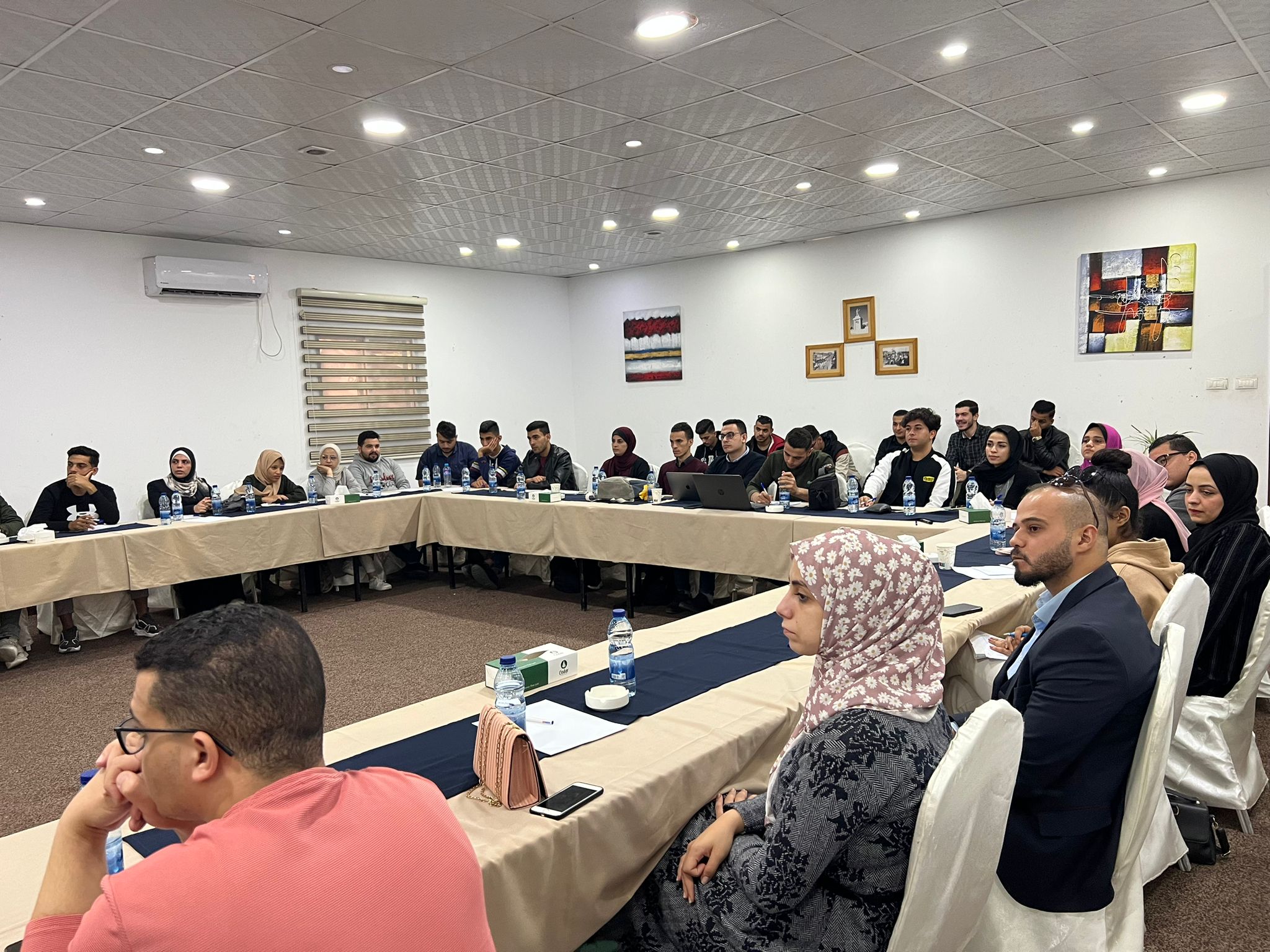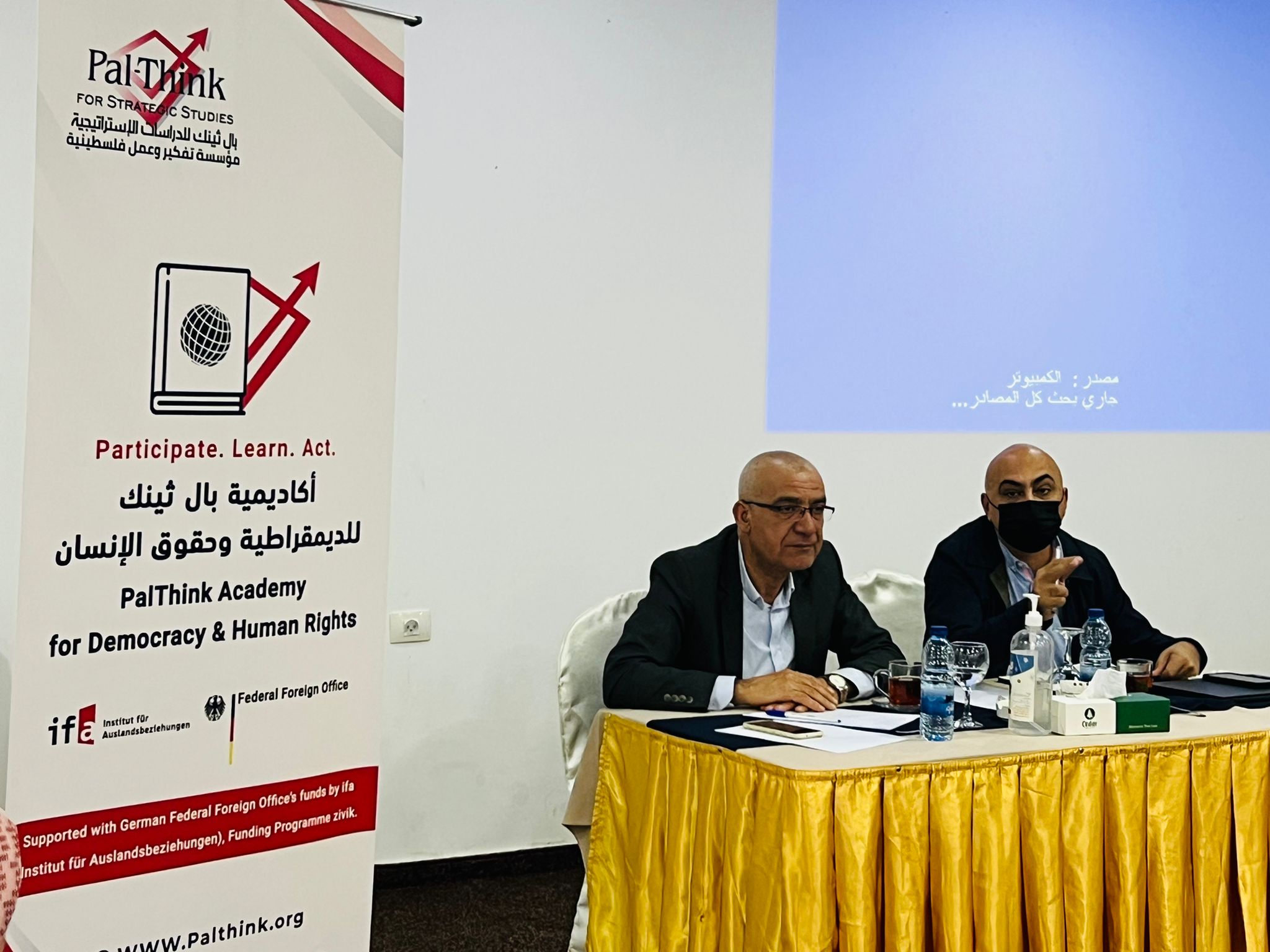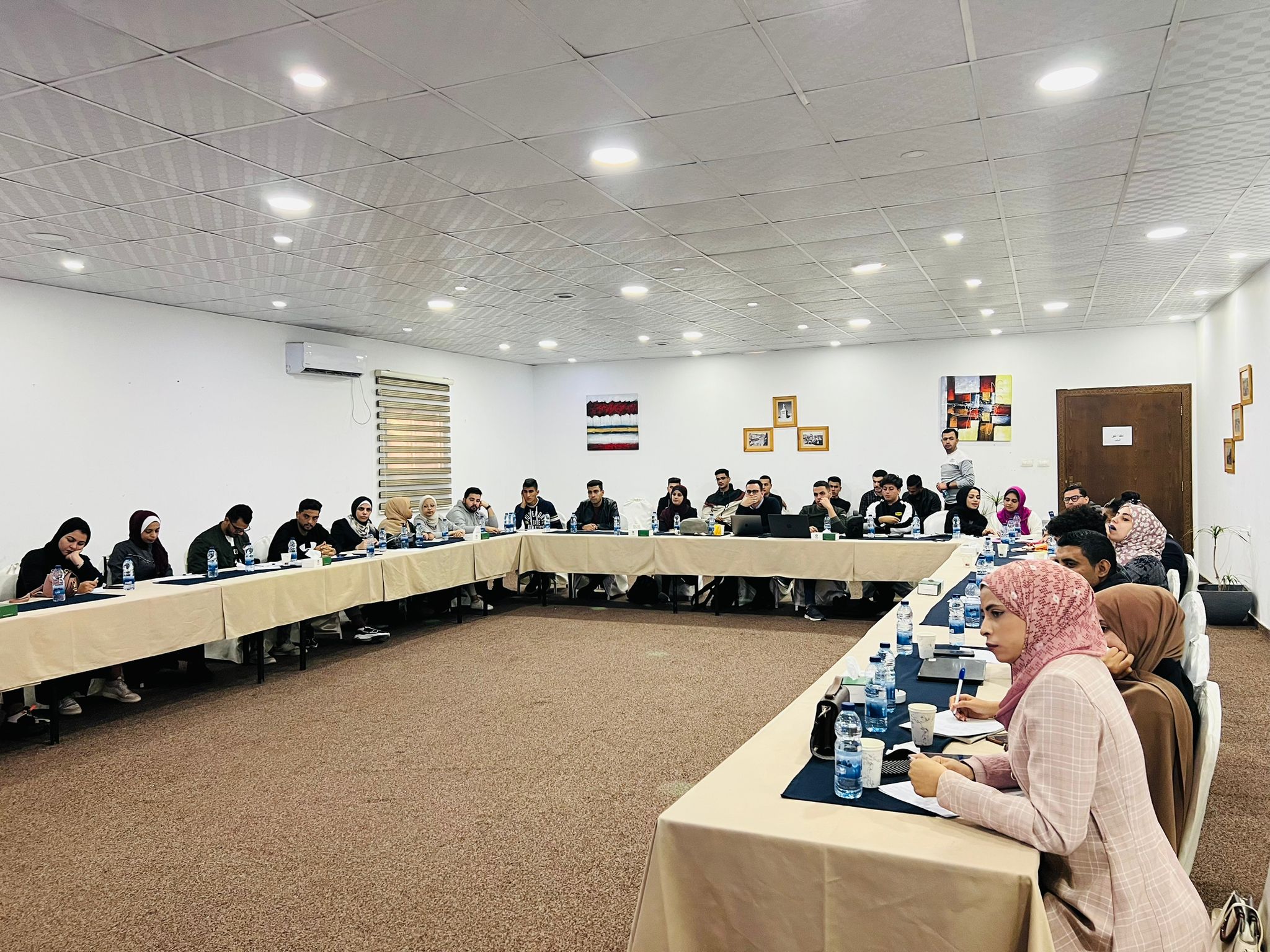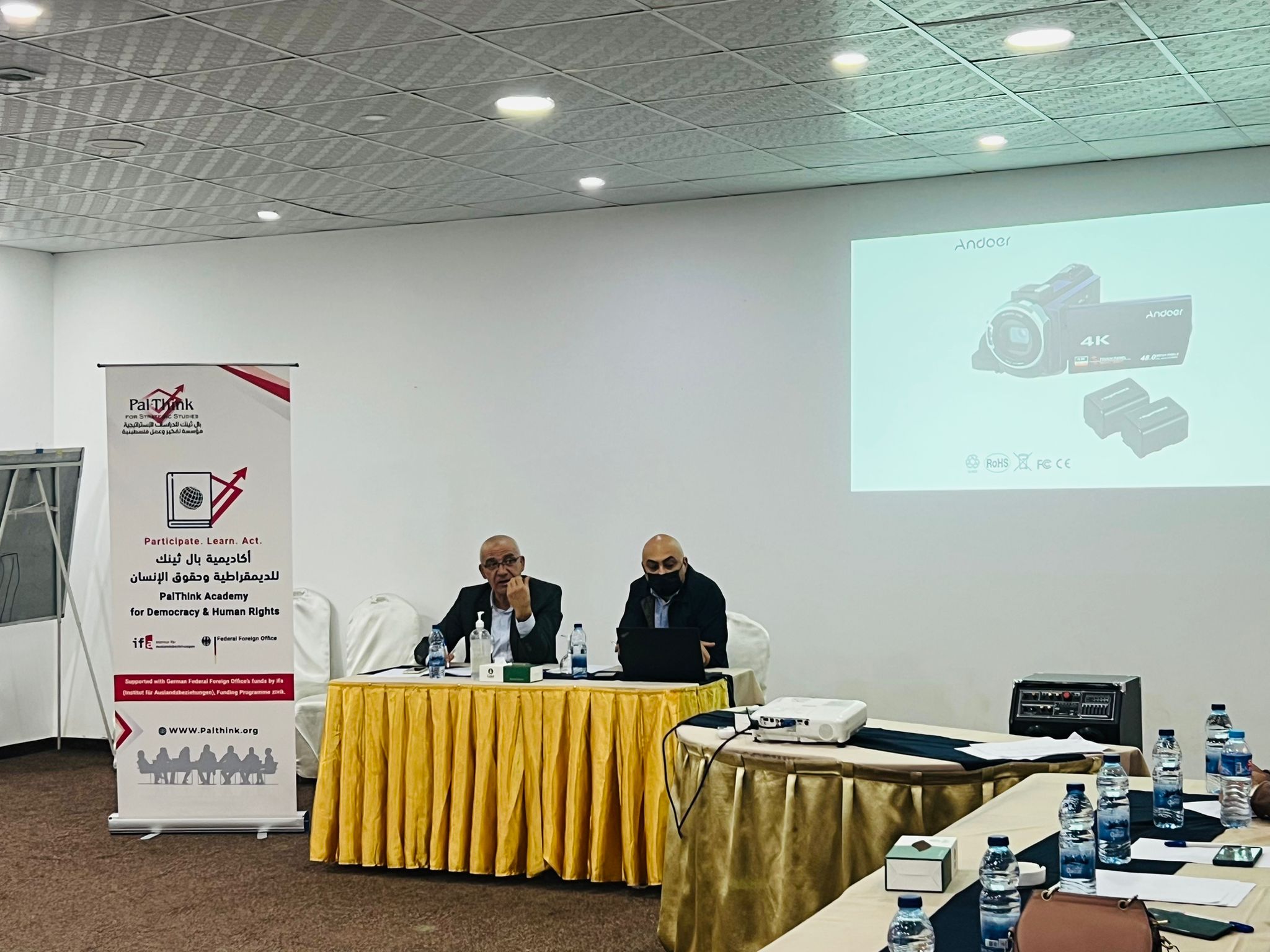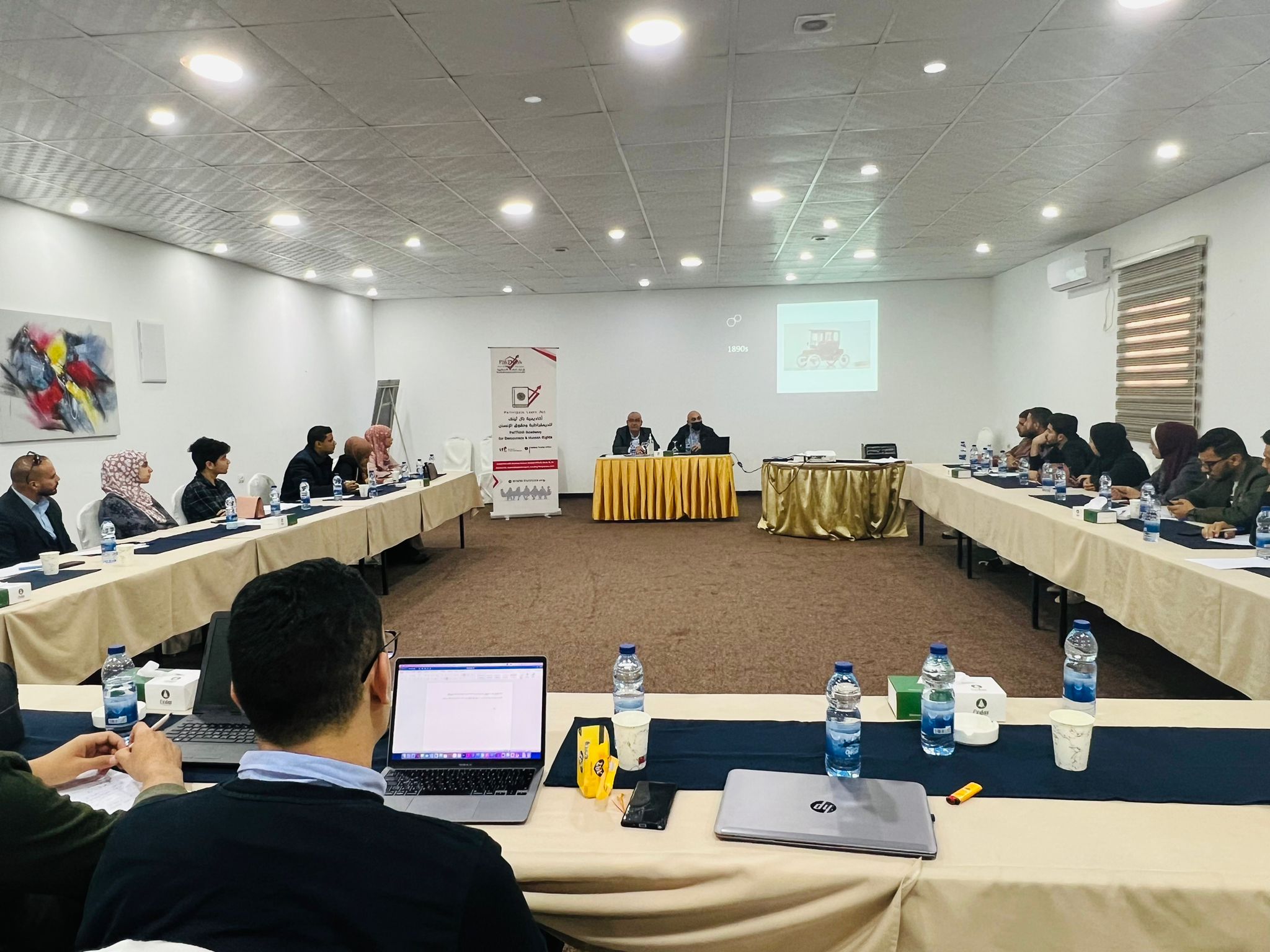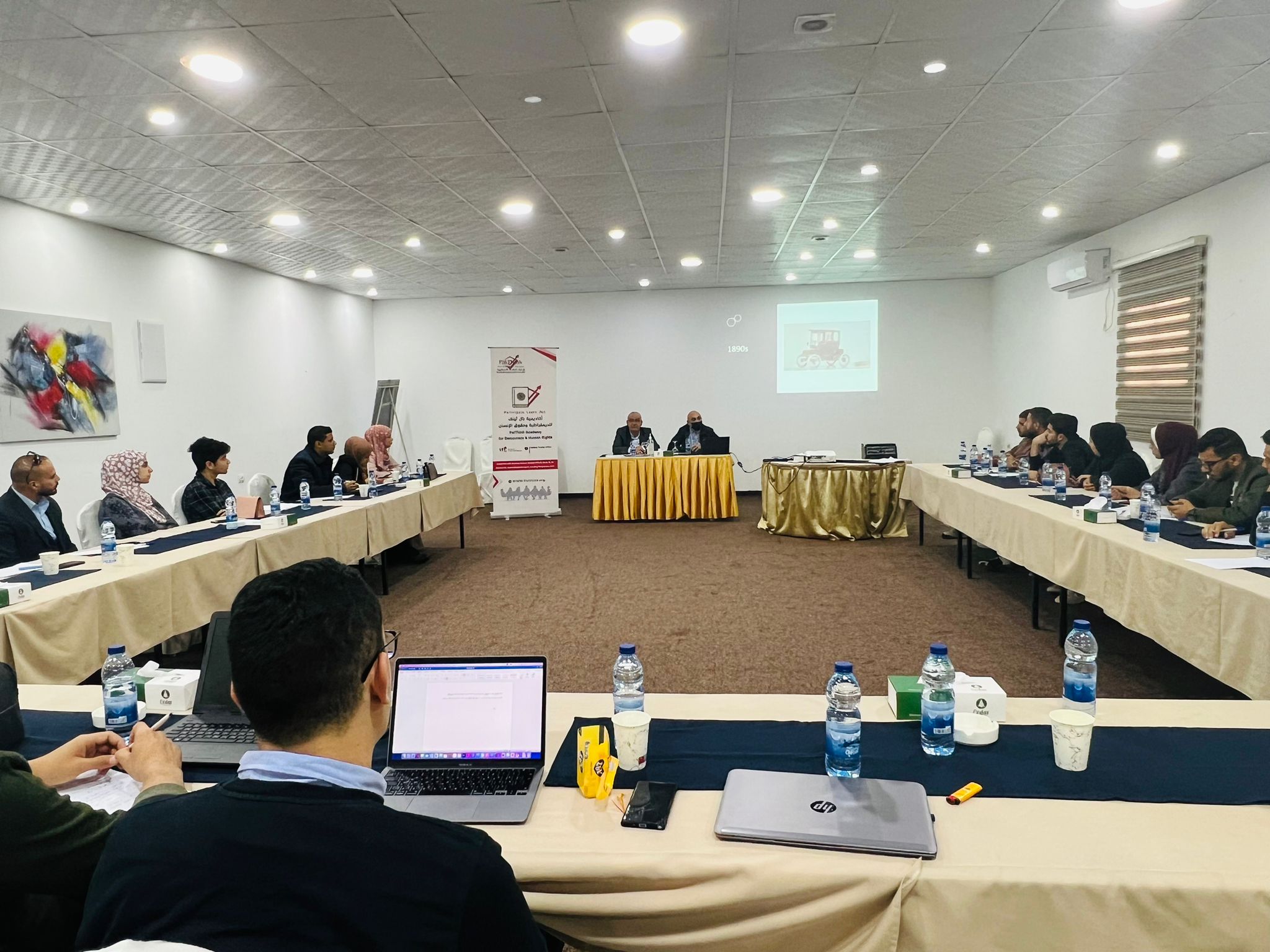
As part of its efforts to raise youth’s awareness and break the intellectual blockade imposed on them, PalThink for Strategic Studies has held a discussion session with UNICEF’s Chief Field Office in Gaza, Ramiz Behbudov, as part of the activities of “PalThink Academy for Democracy and Human Rights”, supported by the German Federal Foreign Office’s funds by ifa (Institut für Auslandsbeziehungen), Funding Programme zivik.
Director of Palthink Omar Shaban opened the session by welcoming the attendees. “We, in Palthink, give young people the opportunity to meet figures, whom they cannot usually meet, such as diplomats and workers of international organizations. And all is to raise the awareness of young people on current issues,” he said.
For his part, Ramiz Behbudov started his speech by thanking PalThink for the opportunity to meet the young people and introducing UNICEF, its work, and its efforts to support children in more than 190 countries around the world without discrimination based on colour, faith, gender, or ethnicity.
The discussion addressed several issues, most notably the importance of innovation in creating solutions to improve the quality of life of children and that UNICEF looks for creative ideas from youth that would resolve problems of children and their communities.
The attendees made several questions and interventions concerning several issues, including the traffic accidents that killed a number of children recently, child labour, seasonal flash floods, overcrowding in school classes, and the psychological effects of wars on the children.
The attendees presented several ideas and suggestions to support the children of Gaza, including building inclusive spaces for them, especially those with disabilities to improve their skills and talents, and a safe network to provide psychological support to them and their families.
Ramiz Behbudov expressed that he was impressed by the questions and suggestions of the participating youth, saying that UNICEF would be happy to support any creative ideas that would provide solutions to the most pressing problems of children.
He said that child labour is a very complicated issue and that there is no easy solution for it, especially in a country that suffers high rates of poverty, and that UNICEF is working with other agencies to make children go to school instead of the streets to work.
The session discussed that dealing with floods is the focus of UNICEF and this year, with support from the Kuwait Government, UNICEF implemented programmes in seven different localities in the Gaza strip to mitigate the impact of the flash floods. UNICEF also works with utility organizations to improve their capacity to address the problems in the long run, as these are their responsibilities. Ramiz Behbudov added that UNICEF is waiting for creative solutions from young people since they are capable of change.
The discussion also highlighted the fact that one of the main problems in Gaza is the psychological effects of wars, and that UNICEF and its partners together provided support to 150,000 children in Gaza during the past year.
At the end of the discussion, the participants discussed violence against children, as 80% of children in Gaza have been subjected to violence while Ramiz Behbudov said that UNICEF supports 12 family centres providing various protection services to 30,000 – 40,000 children every year.


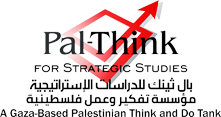
 Home
Home Literature
Literature Studies
Studies Reports
Reports Book
Book International Conventions
International Conventions Links
Links Academy News
Academy News Opportunities
Opportunities Networking
Networking Your opinion
Your opinion
